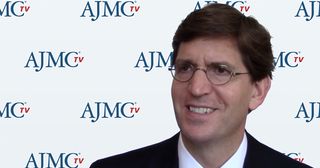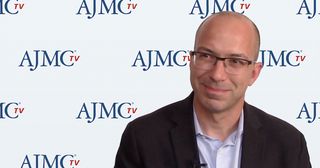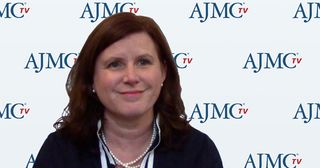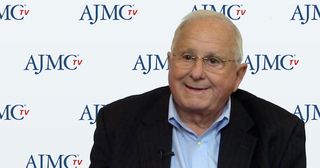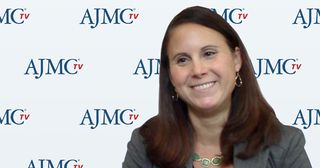
Value-Based Care
Latest News

Latest Videos

CME Content
More News

Patient-centered practice infrastructure was associated with better care quality only among physicians who scored well on their Maintenance of Certification exam.

Artificial intelligence based on medical claims data outperforms traditional models in stratifying patient risk.

During a panel discussion on defining, standardizing, and reporting quality in cancer care during the National Comprehensive Cancer Network Policy Summit held September 12 in Washington, DC, it became clear that stakeholders of all backgrounds have set their focus on one type of metric in particular: patient-reported outcomes.

Oregon’s Medicaid accountable care organizations led to reductions in preventable hospital admissions, especially unscheduled admissions, among female beneficiaries aged 15 to 44 years.

Following the release of the latest accountable care organization (ACO) participation numbers from the CMS, the National Association of ACOs (NAACOS) authored its own take on the latest data around the Medicare Shared Savings Program, Medicare’s largest and most prominent value-based payment program serving 11 million patients.

Medicare Shared Savings Program accountable care organization (ACO) network comprehensiveness is associated with stable patient assignment year to year. Panel stability was significantly associated with improved diabetes and hypertension control in the short term.

Health plans on the Affordable Care Act (ACA) exchanges will be required to display quality ratings starting with the 2020 plan year, according to an announcement from CMS, which is expanding the 5-star rating system it uses on Medicare plans to the health insurance exchanges.

There's been an increased focus on home-based care and community health workers when delivering care to high-need, high-cost patients, explained Rob Mechanic, MBA, senior fellow at the Heller School of Social Policy and Management at Brandeis University and executive director of the Institute for Accountable Care.
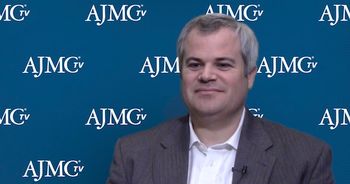
Depending on how ready accountable care organizations (ACOs) are to move to risk probably affects how they view CMS’ decision to transition the Medicare Shared Savings Program (MSSP) to Pathways to Success, said Travis Broome, vice president of policy at Aledade.


Financial toxicity, ACO contracts, removing barriers to care.

Coverage of our peer-reviewed research and news reporting in the healthcare and mainstream press.

The healthcare system has a long way to go to make voluntary payment models more attractive before it can consider making payment models mandatory, said Travis Broome, vice president of policy at Aledade.

Value-based care has been a big prerogative of CMS for the last decade, and it's not going away, Brian Kern, a lawyer with Frier Levitt, told Amy Ellis, director of quality and value-based care at Northwest Medical Specialties.

Rob Mechanic, MBA, senior fellow at the Heller School of Social Policy and Management at Brandeis University and executive director of the Institute for Accountable Care, discusses the importance of HHS focusing on high-need patients in their 5 new primary care payment models.


Medicare Shared Savings Program (MSSP) accountable care organizations (ACOs) cover more than 32 million lives and have been found to save money and improve quality in past research, but a new study in Annals of Internal Medicine is calling their success into question.

Working together to reduce low-value care, stakeholders can help eliminate wasteful spending and deliver on their goal to improve the health of Americans by delivering higher-quality care at lower cost.

This paper describes a replicable process for standardizing disparate databases and methods to calculate cost and quality measures within and across states.

Transforming a practice to become proactive in delivering care, rather than reactive, will be crucial in improving patient care and reducing costs, said Thomas Graf, MD, president, Ascension Medical Group, at the spring session of the National Association of Accountable Care Organizations, held April 24-26 in Baltimore, Maryland.

Among HealthPartners plan members, musculoskeletal, psychosocial, and neurologic conditions create the greatest burden to current health; diet offers the greatest opportunity to improve future health scores; and 42% report a high level of well-being.

The authors determined whether Minnesota health systems responded to competitors’ publicly reported performance. Low performers fell further behind high performers, suggesting that reporting was not associated with quality competition.

A session at the 68th American College of Cardiology Scientific Session continues the ongoing debate whether a CMS reimbursement model has contributed to rising mortality in patients with heart failure.

A new study published in the latest issue of The American Journal of Managed Care® found that Medicare annual wellness visits were associated with lower overall healthcare costs and improved clinical care quality for senior patients at two of Aledade’s physician-led accountable care organizations.

In the context of 2 primary care physician–led accountable care organizations, Medicare Annual Wellness Visits were associated with lower healthcare costs and improved clinical care quality for beneficiaries.

